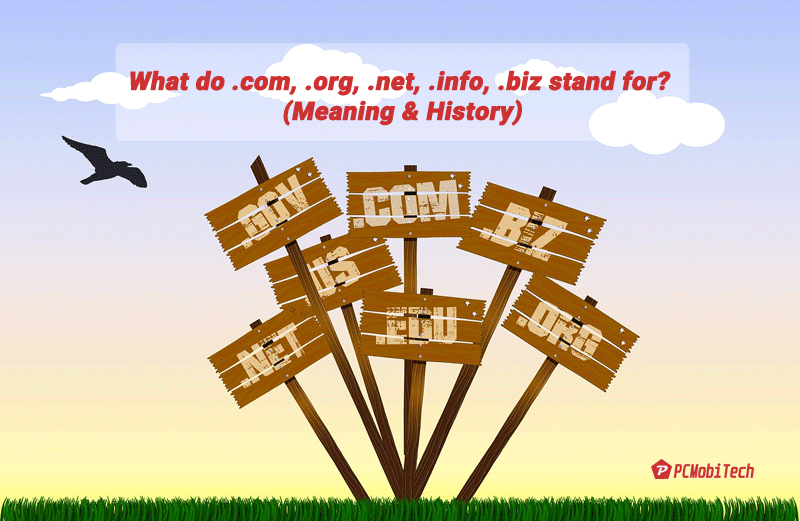In Domain Name System of the internet, .com/.org/.net/.info/.biz, etc. are understood as Top-Level Domain. A domain name, also the website name has several examples.
Nowadays, there are different types of domain name that is used for identifying the Internet Protocol (IP) address. Since the computer uses separate IP addresses and that is a series of numbers. Therefore, it isn’t easy for a human to remember all the numbers.
Hence, these websites or domain name was initiated for identifying the entities on the Internet. Every company, group or individual can make their website using these specific top-level domains. Let us start unraveling the mystery of different top-level domains right now-
Meaning and History of .com, .org, .net, .info, .biz

.com
Derived from Commercial, this word was invented almost 35 years ago on January 1 1985. This domain name has always been top-level domains (TLD). And this was administered by the Department of Defence (DoD), United States. And further, it was merged as DDN-NIC by SRI International and termed as SRI-NIC.
The actual use was for general purposes and the commercial entities (worldwide). No one sponsors it. It is the most common top-level domain for email, websites, and networking. These are better known as dotcom companies or simply dotcom. Several non-commercial networks and sites use this domain name for their commercial purposes.
.net
.net is served from the word network. Since dotcom is used for Commercial, the dot net is used for networking purposes. And the organizations that are involved in networking technologies, like the infrastructure companies or Internet Service Providers. Dotnet is one of the top-level domains and can be said as a generic top-level domain (gTLD).
It was also introduced on January 1, 1985, and the use is for ISPs. Sometimes it is also used when the desired name isn’t available in the .com domain name. You can use .net instead.
.org
Same as com, net, us, gov and edu, this domain name was founded on January 1 1985. And the name of this domain is related to the organization. This domain is usually taken by open-source projects, communities, and schools. It is a generic top-level domain, and PIR is connected as a sponsor with the Internet Society.
We can say that this domain is associated with non-profit organizations, some government websites and also, personal sites. Mostly, this domain name is used by non-commercial entities. Also, you need to know that it costs a bit to register for it.
.info
Information, that’s what it is derived from. And this domain name came into existence 19 years ago in 2001. This domain name is for informational websites and to be used for general purposes. Also, this is the unrestricted domain. It means that anyone can attain a second-level domain for any use.
.biz
.biz is about business; it is a generic top-level domain. It is used by business professionals or for their company. It isn’t free; it has some cost for registration. One can use it for any information purpose, for promotions, advertisements or even blogs.
You May Also Like:
In Conclusion.
Every abbreviated form has a meaning and its full form. Also, here, every domain name has a specific role in this era of networking. These are domain names associated with the World Wide Web (WWW), and their different forms have various functions. So it’s crucial to know about every domain name.
Now, we are hoping you are all clear about .com, .org, .net, .info, .biz. Still, if you have any doubts about the right Top Level Domains for you, ask us your queries in the comments below.
When you purchase through links on our site, we may earn an affiliate commission. Read our Affiliate Policy.



